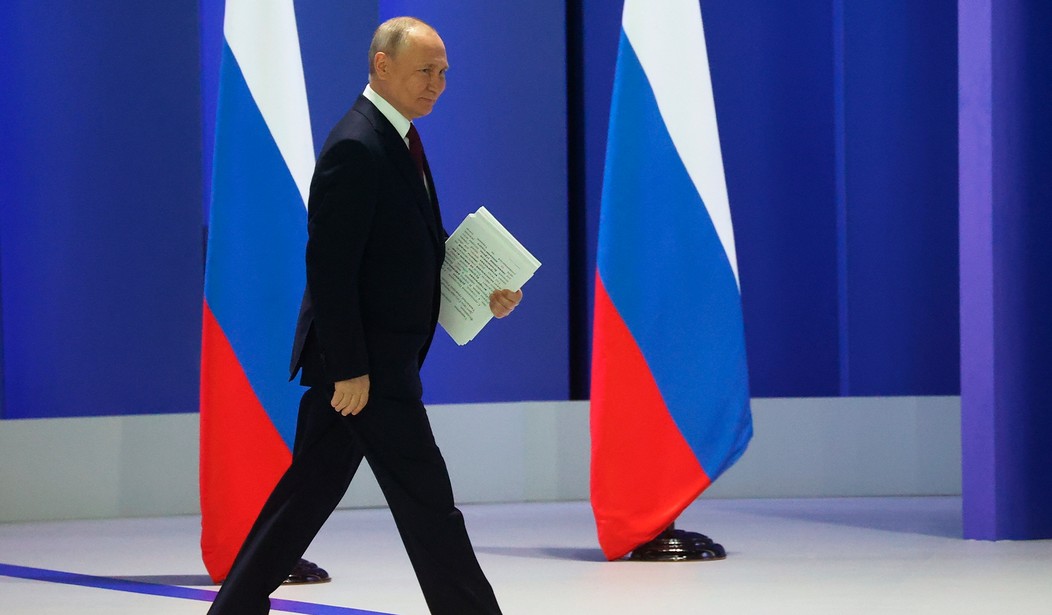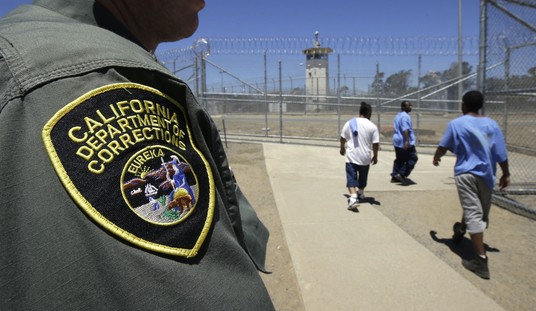The Russians say nyet nyet nyet, but their nose cones say da, tovarisch.
The Wall Street Journal reported last night that new satellite imagery shows Russian transport planes getting prepped to load lots of cargo at the Khmeimim air base (spelling varies by source). That base, located in what had been Bashar al-Assad's Alawite stronghold near Latakia, allows Russia to project power throughout the region and provides lines of communication to their operations in Africa:
Russian troops were preparing to load cargo at Moscow’s main air base in Syria, Maxar satellite imaging showed, potentially signaling the early stages of a military withdrawal from the country following the fall of President Bashar al-Assad.
Two An-124 heavy transport aircraft were at the air base with their nose cones lifted and prepared to load cargo, the images showed. Nearby, a Ka-52 attack helicopter and an S-400 air-defense system were being dismantled, likely for transport.
“The Russian withdrawal is picking up steam,” Dara Massicot, senior fellow in the Russia and Eurasia program at the Carnegie Endowment for International Peace, posted on X. “Whether it will be full or partial is unclear so far.”
Earlier in the week, Russia's foreign ministry had expressed hope of working out a deal with the rebels to allow continued operations at all of their current facilities. That seemed unusually optimistic at the time, since Russia's main use of those facilities over the last decade has been to keep Assad in power by launching attacks on the same rebels who just deposed Assad. Now that the Russians are sheltering Assad, the rebels may have even less enthusiasm for Russian forces in their territory.
Khmeimim may not be the biggest loss to Moscow in the collapse of Assad. The Russians also want to keep their warm-water port in Tartus, which they have used for decades to project naval strength into the Mediterranean. The Washington Post again reports that Moscow has sounded optimistic about extending that partnership with the new regime, but actions speak louder than press flacks:
“The bases remain on Syrian territory, where they were,” Deputy Foreign Minister Mikhail Bogdanov told reporters Thursday. “No other decisions have been made yet.”
A spokesman for HTS said he could not comment on the future of the Russian sites.
But Russia has repositioned many of its assets. Ships departed Tartus 10 days ago to loiter several miles offshore.
Russian troops were vacating smaller bases in Manbij and Kobane on Monday, the Syrian news outlet North Press Agency reported this week.
Bloomberg reported on Thursday that Russia and the HTS-led rebels were close to an agreement, but all of these moves indicate something else. The Russians would not be loading up materiel and men from Khmeimim now if an agreement was almost at hand. Analyst James Brooke believes these show that Vladimir Putin knows the rebels will kick them out and want to avoid looking like Joe Biden in Kabul:
While most Syrians were at Friday prayers yesterday, convoys of Russian soldiers and their armored personnel carriers converged on Russia’s coastal air base for flights home. In one of several convoy videos posted online, Syrian rebels could be seen jeering and holding up the soles of their boots — an insult in the Arab world.
Russia’s retreat from Syria strategy seems to be to fly out the most men and expensive equipment — before the post-revolutionary euphoria starts to wear off. They want to avoid the televised debacle of America’s chaotic retreat, in the full light of television, from Afghanistan in the summer of 2021. ...
Moving from the interior of a country slightly bigger than New York State, the convoys of military vehicles, with tricolor Russian flags flapping in the desert breeze, could also be destined for Khmeimim’s sister naval base, Tartus, 40 miles further along the Mediterranean coast.
Satellite photos show piers there remain empty. Two Russian frigates loiter about 10 miles offshore, out of mortar range. According to Ukrainian Military Intelligence, a “caravan” of Russian transport and landing ships is steaming from the Baltic and the Arctic to evacuate equipment and soldiers from Tartus. There are believed to be around 3,000 Russian soldiers in Syria.
This could all change, of course, and still might. Russia can re-dock at Tartus and re-install their men at these bases if they can convince the rebels to trust them ... after more than a decade of propping up their bitter enemy and attempting to destroy their revolt against Assad. HTS knows that they can use Russia as leverage against the West to get concessions, aid, and diplomatic recognition, and they will likely play that card to its best advantage. However, it seems almost impossible that they would allow Assad's power partner to remain in their country, especially while Assad is still alive and could foment a counter-revolution or coup with Russian assistance.
And all of this goes double for Hezbollah and Iran. That's why they both got out as Assad fell rather than stick around to see what would happen next.







Join the conversation as a VIP Member